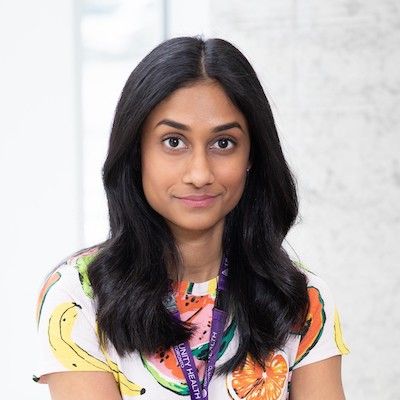A cancer diagnosis brings a lot of questions about diet, nutrition, and meal planning as it relates to both treatment and recovery. Working with a health professional who specializes in oncology and understands the science related to cancer and nutrition is important to give clients the confidence to eat the foods they love while optimizing treatment outcomes.
Cathy Biase is a Holistic Nutritionist and Certified Professional Cancer Coach who specializes in the functional application of nutrition with a focus on cancer care.
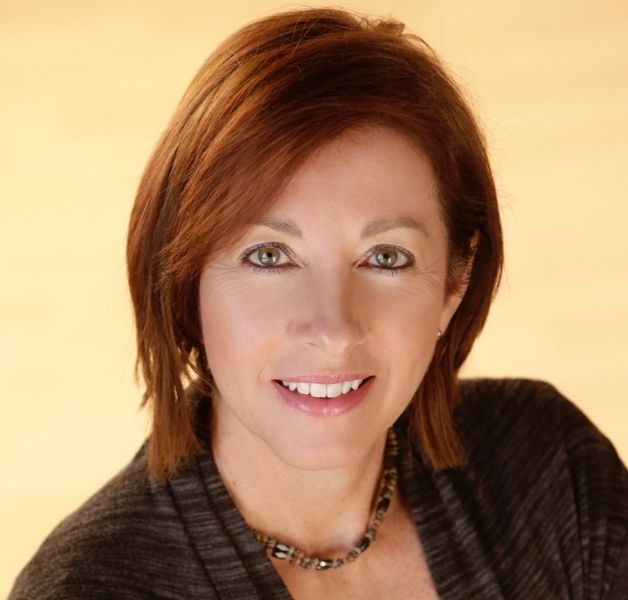
“As a nutritionist and cancer coach, my target of care is to improve the overall health of the people that I work with because I firmly believe that a comprehensive cancer protocol and an effective prevention plan must include addressing one’s health to be truly effective. Attending to the nutritional needs of each person is a key area of my focus to begin cultivating this health.
Cathy’s education along with her personal journey through a cancer diagnosis has given her a profound understanding of how vitally important proper nutrition and lifestyle are to achieving optimum health.
"On a personal level, having gone through both conventional and integrative care when I was diagnosed with breast cancer gave me an intimate understanding of how important attending to diet is to both completing allopathic care with minimal side effects and to lay the groundwork for cancer prevention.”
Functions of Food Within a Cancer Protocol
Cathy has created The Integrative Cancer Nutrition Method to help active cancer clients and those looking to prevent cancer. She understands that a well-structured diet can help to provide key nutrients to strengthen and prepare a cancer client’s body before surgery, chemotherapy, and/or radiation.
"It helps to lower the risk of infection, supports the body’s innate detoxification system, and provides the building blocks to strengthen and repair a cancer patient’s body post-treatment.”
Cathy also believes in food bringing joy, which can be a hard thing to find when you are going through a cancer diagnosis.
"I am very conscious about the stress that a cancer diagnosis can bring, and I do not want to add to it by creating a nutrition plan that is complicated and unappealing. That Clean Life enables me to address nutritional objectives by using recipes with healthy targeted ingredients, that are easy to prepare, tasty, and suitable for the whole family.”
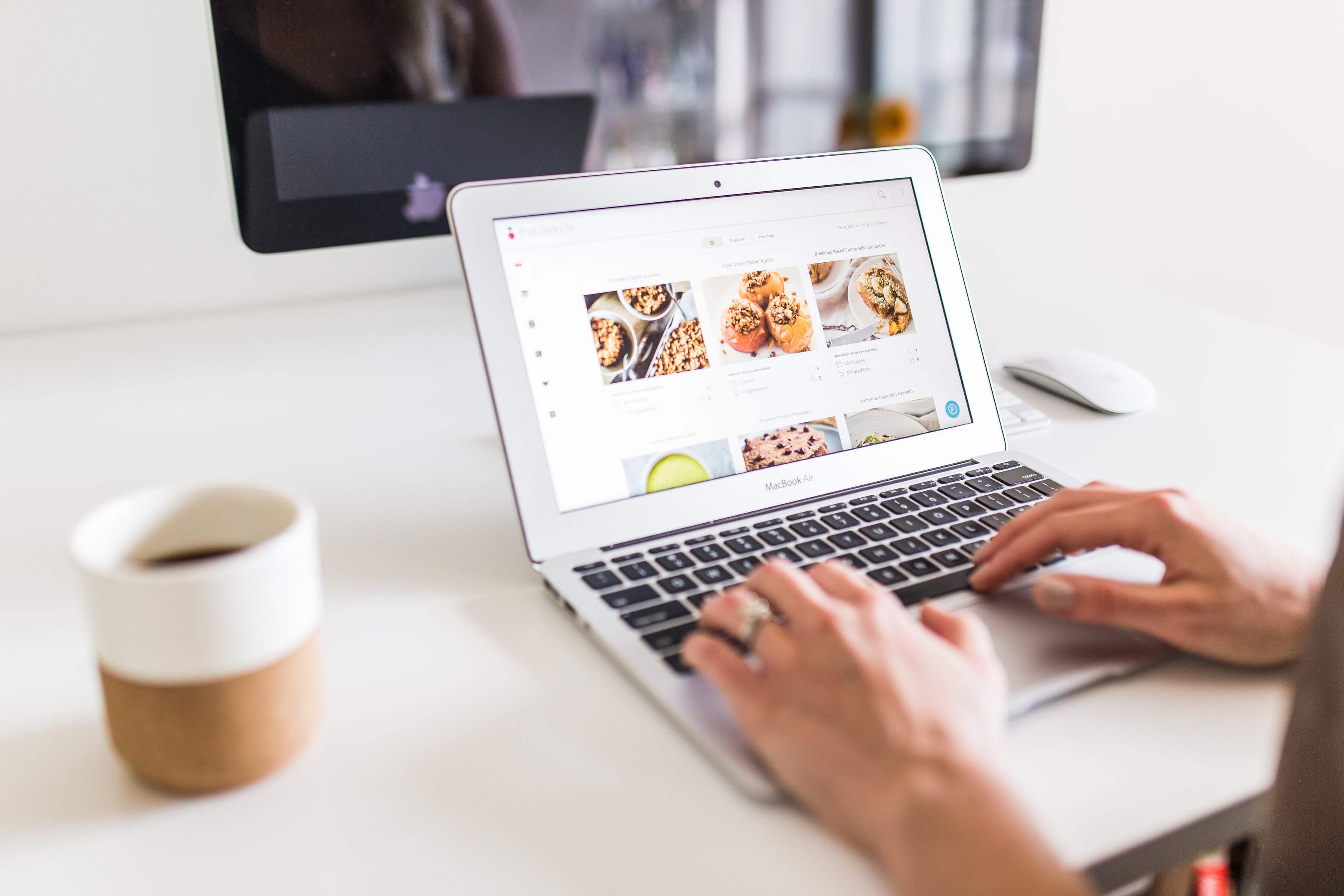
Providing appropriate meal plans can help clients with cancer treatment side effects like changes in taste, smell, appetite, and digestive issues.
"One of the things that my clients enjoy are the options I am able to provide within the recipes enabling them to personalize what they are preparing. This is a very favorable benefit for those going through treatment who may experience changes in taste.”
Foundations of an Anti-Cancer Diet
Consuming a nutrient-dense diet consisting of whole foods, limiting processed foods, and excess sugar is important to help clients respond better to treatment. Cathy encourages her clients to build a plate composition that is approximately 80% plant-based. The remainder of the plate should be well-sourced animal protein if consumed, and a variety of antioxidant-rich nuts, beans, whole grains, and healthy fats.
"A plant-based diet is foundational to an anti-cancer diet. Dark green vegetables, tomatoes, citrus, cruciferous vegetables such as broccoli and cabbage, and carotene-rich ones such as carrots and cantaloupe may reduce overall cancer risk."
Creating a Healthy Microbiome
There are several benefits of maintaining a healthy balance of good and bad bacteria in the colon. Our gut bacteria, also called the microbiome, plays an important role in many diseases, including cancer.
“Cultivating optimal gut health is the cornerstone of cancer prevention and promoting the health of cancer patients. A healthy gut microbiome helps control inflammation, influences mitochondrial function, plays a central role in detoxification, facilitates absorption of minerals, and synthesizes important vitamins and short-chained fatty acids. A diet nourishing gut health includes an abundance of phytonutrients, probiotic foods i.e. fermented foods such as kefir, yogurt, and kimchi as well as prebiotic foods rich in fiber.
Key Considerations of Meal Planning for Cancer Patients
Here are the meals that Cathy uses most often from That Clean Life to address the nutritional needs of her clients with cancer.
Nutrient-Dense Smoothies
Smoothies are an easy and delicious way to add calories and key nutrients to your client's diet, especially if they have low appetite or fatigue. Cathy adds smoothies to her clients' meal plans when their treatment has certain side effects, as smoothies can be very beneficial for those with digestive distress in treatment.
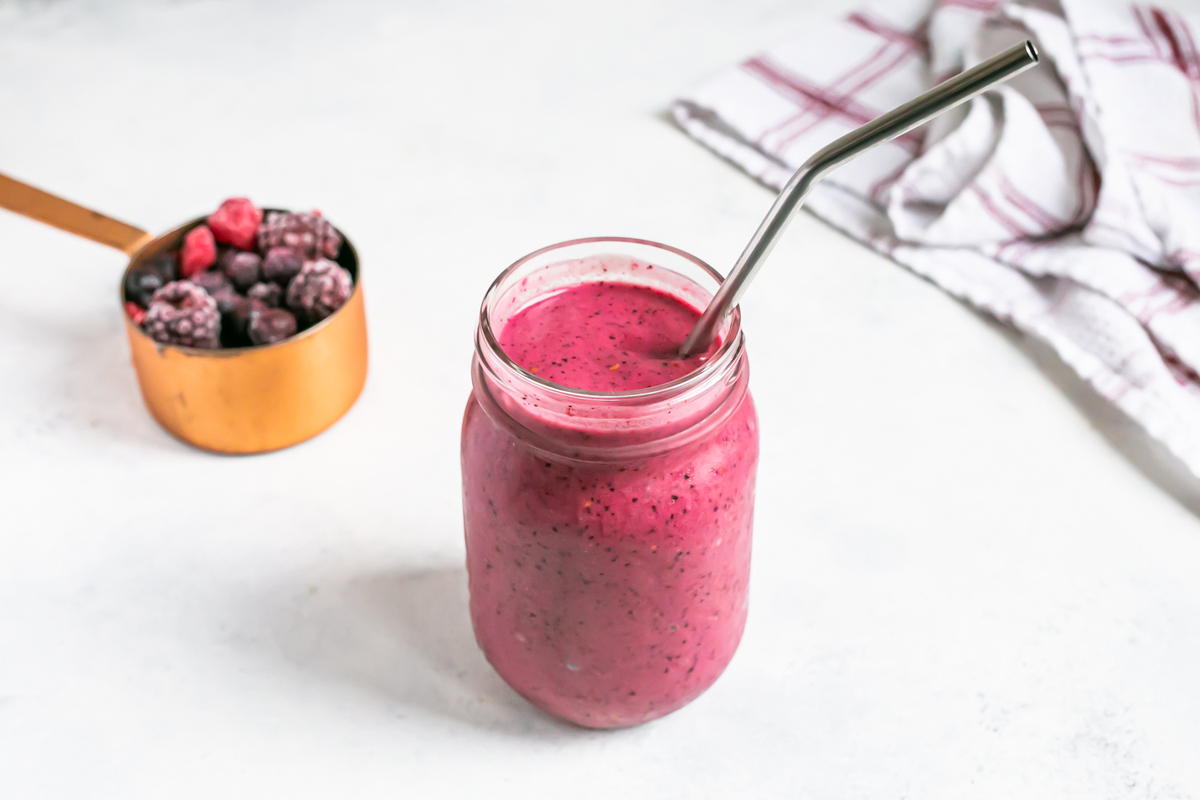
Cathy loves using our Kefir Berry Smoothie and often swaps the kefir for coconut kefir to support gut health.
"This recipe provides key ingredients to help manage blood sugar, support immunity and detoxification, and essential protein to help the body repair during treatments."
Cathy uses the Berry Beet Smoothie Bowl for its liver-supporting ingredients.
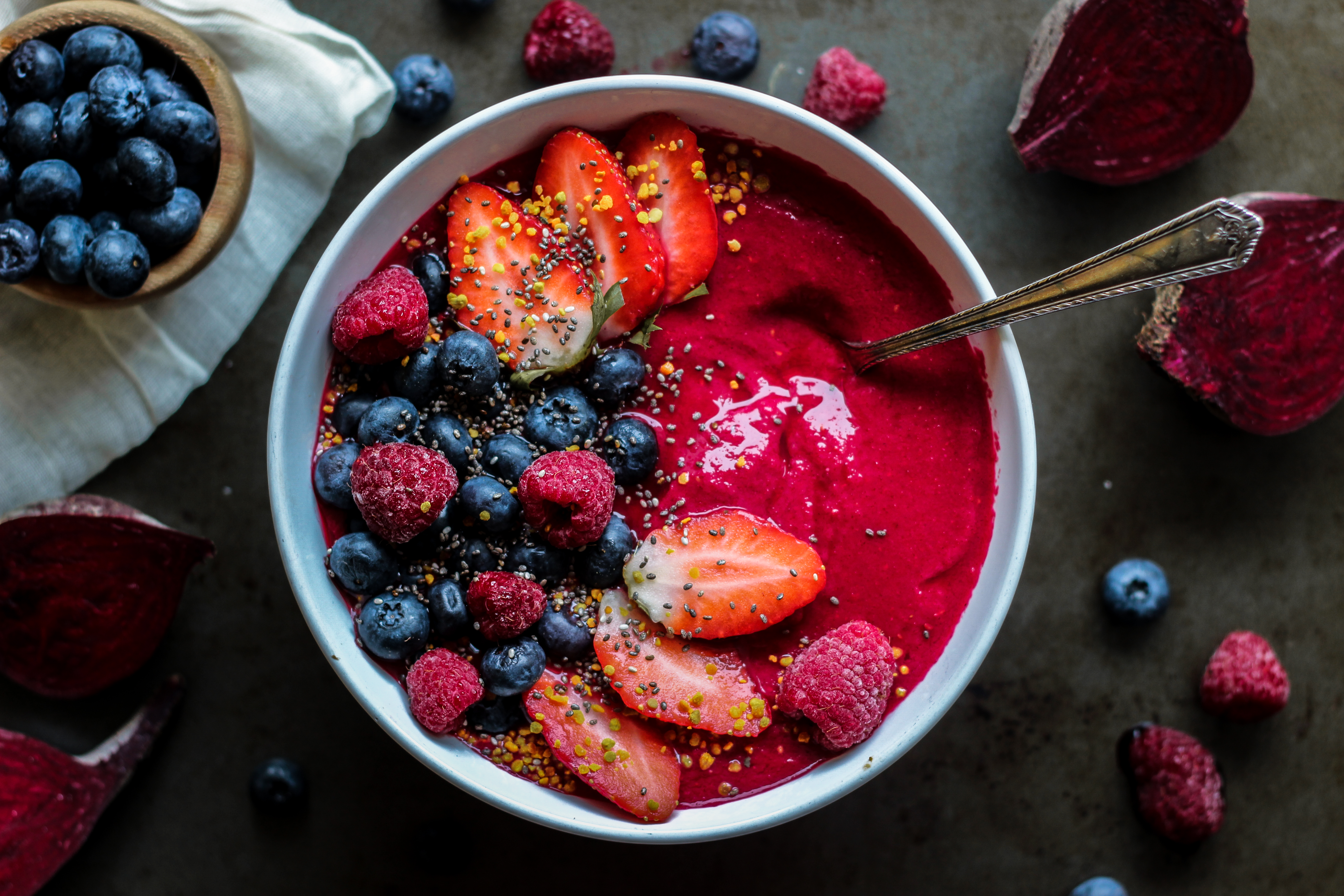
"Just looking at this bowl makes you want to eat it! Our liver works very hard for us, day and night. During cancer treatments, the liver may have to work even harder so supplying essential nutrients to support it is very important. This recipe incorporates beets and Schisandra berry powder, two ingredients very supportive of liver health.”
Anti-Inflammatory Foods & Antioxidants
Turmeric has been utilized in herbal remedies for a variety of ailments, including cancer. Cathy loves our Golden Turmeric Latte as a way to introduce this beneficial spice to her clients. Turmeric, along with ginger, both have anti-inflammatory and strong antioxidant properties.
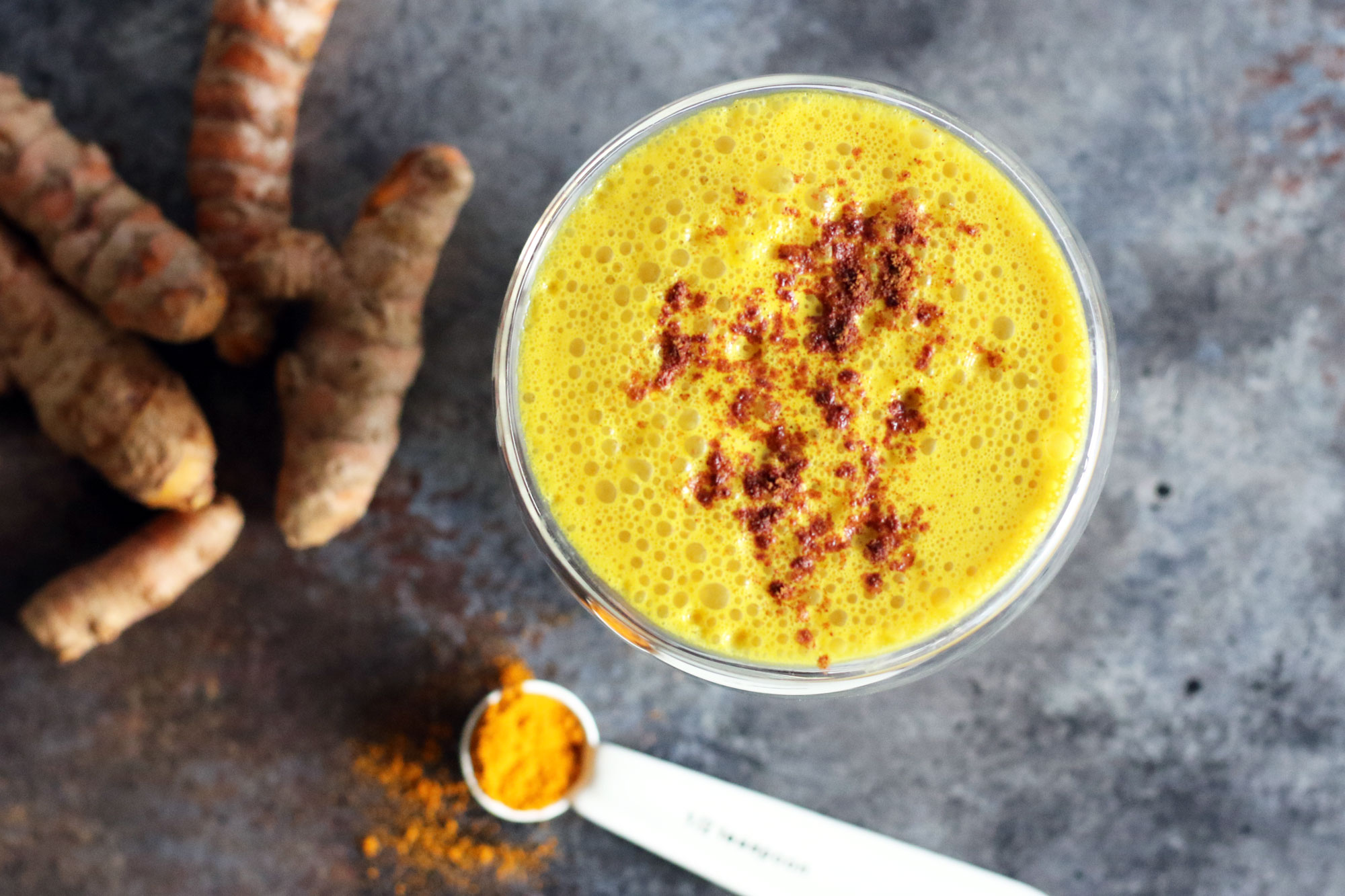
"There are so many reasons why I love this recipe. It is soothing, comforting, tasty, and a wonderful way to introduce turmeric to my clients. Turmeric is a spice that is making its way into the western diet because of its amazing health properties. It provides anti-inflammatory and antioxidant benefits and is supportive of gut health. A wonderful addition for those in active cancer care and prevention.”
Balanced Meals
Creating veggie-packed meals with a high-fiber grain and lean protein source can help clients reach their daily macro and micronutrient needs. This is why Cathy adds our Baked Salmon with Broccoli & Quinoa to her clients' meal plans.
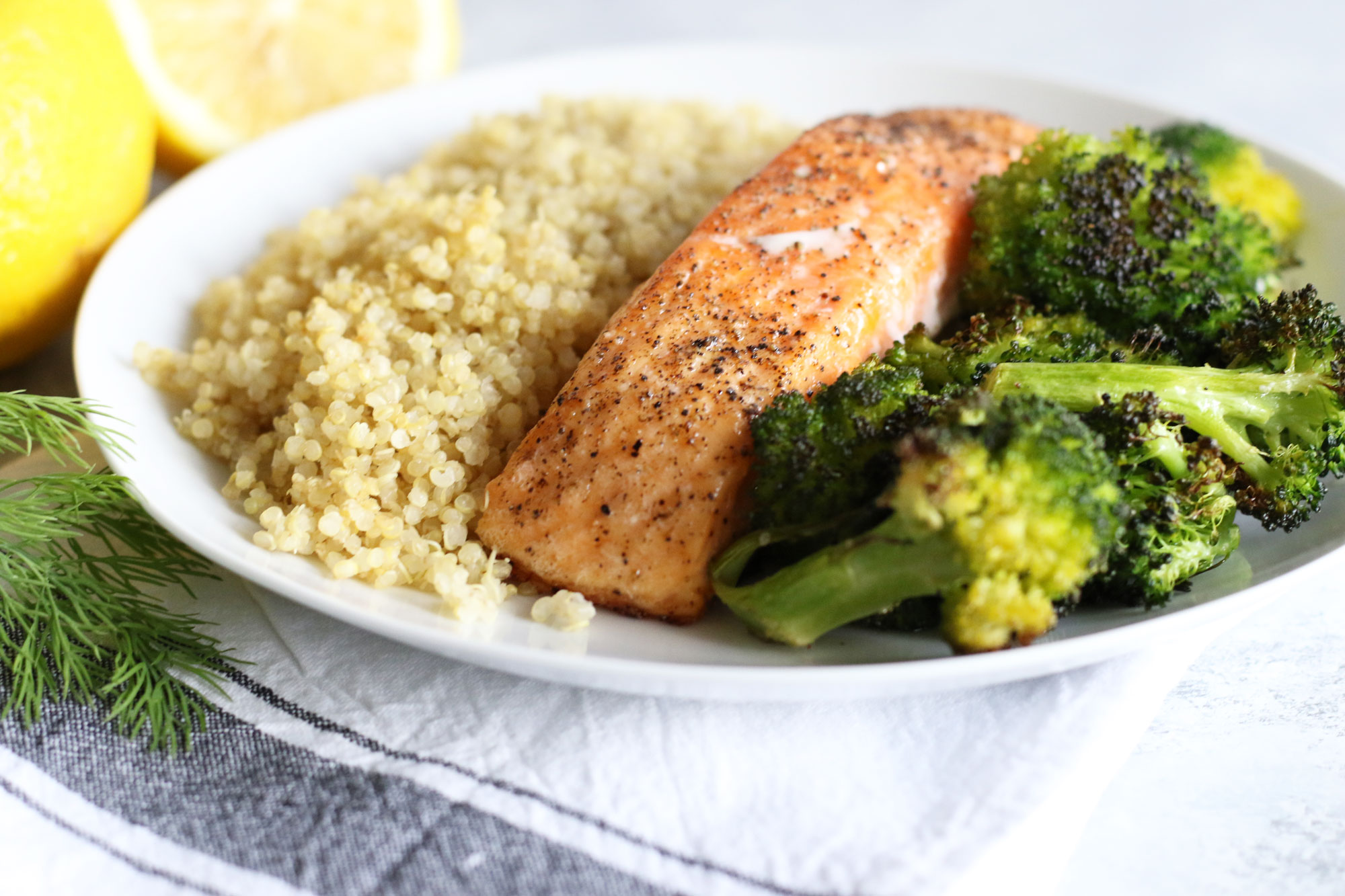
"Salmon is a wonderful protein and a very good source of Omega-3 Fatty Acids. Salmon contains health-supporting nutrients such as selenium and B vitamins as well as Astaxanthin which supports heart health. Supporting heart health can be important during some chemotherapy treatments. With the addition of broccoli and quinoa, clients get a very well-rounded meal supplying a good balance of the macronutrients as well as fiber. This recipe is a great example of what I encourage in a cancer prevention diet and is very supportive during allopathic care.
Simple & Satisfying Salads
If your client is sensitive to smells or needs a filling and refreshing meal, a hearty salad is a great option. One of Cathy’s favorite recipes in her own home and for her clients is our Grilled Pineapple & Chicken Salad. She loves this salad as it is served in one bowl with minimal clean-up, it’s family-friendly, makes a great leftover dish, and it’s delicious!
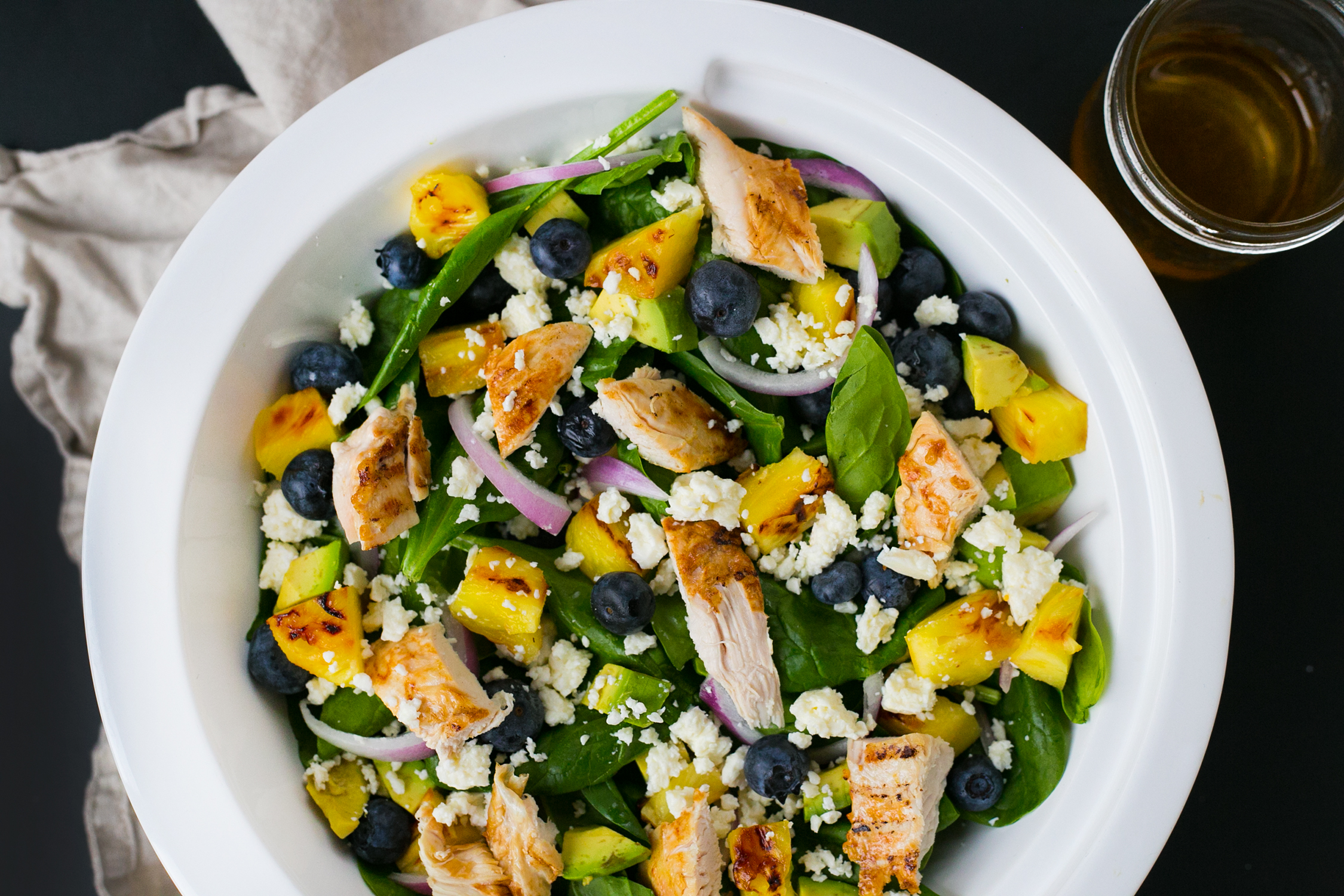
"It is just loaded with so many healthy ingredients like avocados and olive oil that provide healthy fats, chicken which is a great lean protein, spinach for vitamins A, C and K, iron, magnesium and fiber, blueberries supplying antioxidants, pineapple that helps with digestion, and apple cider vinegar which is great for gut health.”
Introducing Sea Vegetables
Snacks like Nori & Seed Crackers can be batch prepped and refrigerated or frozen for longer. Cathy adds this recipe to her clients’ meal plans for its many health benefits.
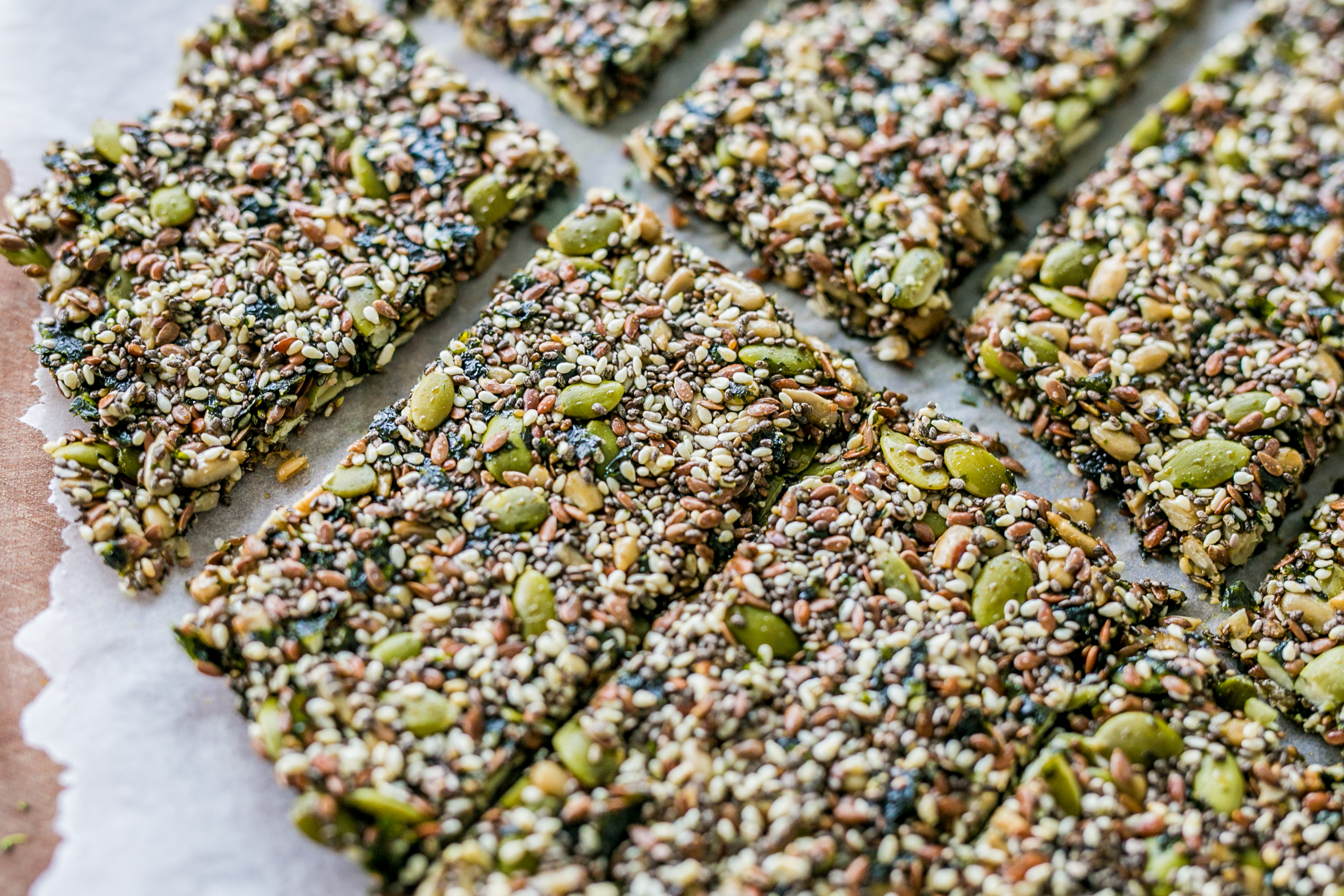
"Sea vegetables are high in vitamins, minerals, and fiber and although they are very common in Asian diets, we in the western world are not as familiar with them. Along with the nori, the fiber from the seed mix goes a long way in helping people reach their daily fiber goals.”
Want to learn more from Cathy Biase? Check out her website or follow her on Instagram, Twitter, or Facebook
